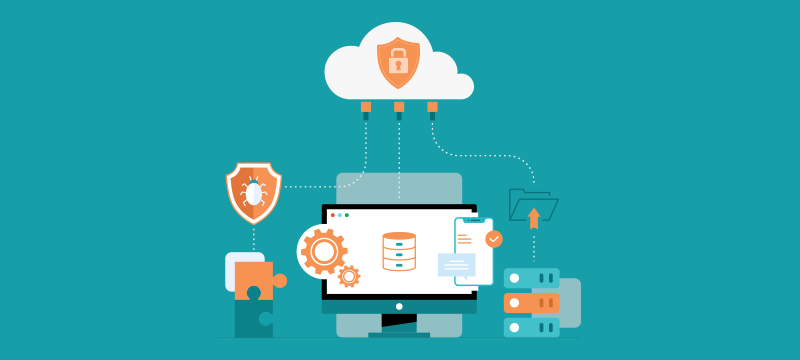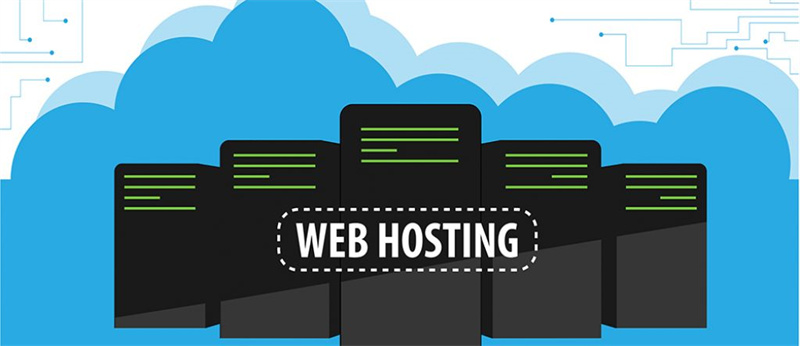Over the last three decades, the website amount grew from one in 1991 to 200 million active websites in 2022.
Most businesses have neat websites alongside newspapers, online games, influencer blogs, and more. If you plan on building your own online presence, you will have to find a reliable web hosting service provider.
Choosing web hosting services can get a bit tricky. Sadly, there are web hosting scams that exploit the vast service demand. At the same time, you should make sure legit hosting services provide sufficient cybersecurity features. This article overviews the most common web hosting mistakes you should avoid in 2022.
Navigation of Contents
Choosing a Secure Provider
Your website can become your primary source of income. That's why you should ensure its safety. If your website gets hacked, you might lose acquired traffic alongside the revenue it brings. According to the National Cybersecurity Alliance, 60% of businesses do not recover after suffering a data breach.
The web hosting service provider has to secure its servers. However, most of them will state they are 100% foolproof because it sells. In reality, it's up to you to scrutinize their services and decide whether it's worth the investment. Here's what to look for.
Hardware Security
Websites are stored on physical servers. You should ensure the provider takes good care of their physical and virtual security. Firstly, there should be a real-time threat monitoring system. They should be aware of emerging dangers and secure the servers before an intrusion happens.
Most providers use the Secure Socket Shell (SSH) protocol to control server access. It offers an encrypted data communication channel, safe remote access, and password authentication. If they don't use SSH, they should use alternative security measurements. For example, a password management tool will ensure password security, preventing unauthorized access.
It also allows sharing of passwords over a secure communication channel. Use it instead of receiving passwords via email or unencrypted chat services to minimize the risks.
Just like software takes care of online access issues, data centers should ensure physical access security. Only company employees responsible for server maintenance should get physical access to their location.
The data center should have motion detectors, cameras, and restricted access points with specific verification rules. Remember, the servers store personal information, such as credit card details, birth date, address, etc. Securing such information is of utmost importance.
Lastly, your website will go down if a tornado hits a data center. If possible, ensure your provider is based in a secure geographical location. Server rooms should be waterproof and fireproof.
SSL Certificate
HTTPS (Hypertext Transfer Protocol Secure) was created in 1994. But only the Electronic Frontier Foundation pushed it to broader use in 2016.
HTTPS applies SSL encryption to all online traffic. Previously, information flowed via HTTP without any encryption. Cybercriminals could monitor online traffic and extract valuable information. For example, Man-In-The-Middle attacks gathered user passwords, credit card numbers, private conversations, and anything else hackers sought.
SSL encryption ensures the information flows in an unreadable gibberish. It prevents many common hacking techniques, which is highly beneficial for server hosting.
Moreover, search engines like Google mark websites without an SSL certificate as insecure. It will drive people away from your website and hurt its indexation in the SERP. Right now, more than 80% of websites have SSL certificates. It's best to ensure the web hosting provider offers an SSL certificate. However, if they don't, you should take extra steps to acquire one yourself.
Web Application Firewall
A firewall is a crucial cybersecurity tool that inspects online traffic. It will monitor traffic to your website (to the website server), checking it for malicious elements. If it finds ill-willed code, it will isolate it and issue a warning to investigate the issue. Reliable web hosting service providers offer host or cloud-level web application Firewalls.
Avoid Free Web Hosting
There are many free web hosting services. Some businesses choose them because it saves money, which is especially important for new companies. However, the consequences can bring more harm than benefit.
Firstly, free hosters often lack sufficient cybersecurity features. They might lack a reliable WAF or use a cheap option that will not detect the most recent cyber threats. They won't offer SSL certificates or renew them after expiration. Frequently, no 24/7 customer support team will assist you with crucial issues on time.
Second, they share website servers between multiple users. It poses security and speed issues, hurting your SERP indexing. Remember, Google is very picky regarding website loading speed. You will lose traffic if free providers fail to meet your scalability requirement.
Final Words
Today, security is one of the most significant issues. It would be best if you took care of web server safety before anything else. Once you have that settled, verify the server is ready to accept potential traffic.
Some websites work well with thousands of users and fail once they reach six-digit numbers. Running tests before launching the website for public use can save you a lot of trouble.

